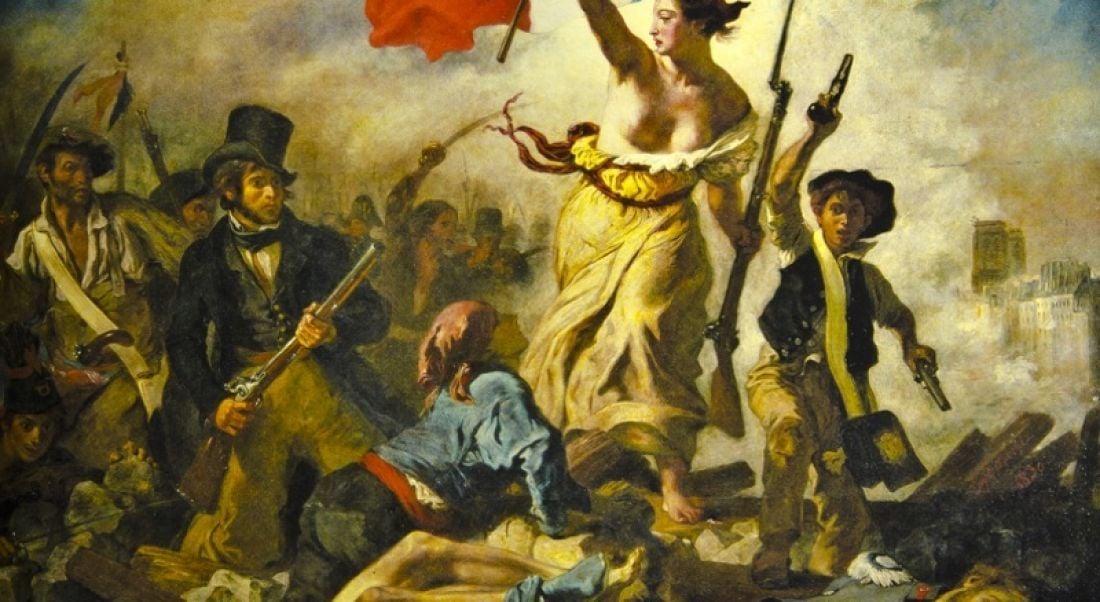The global war for talent is exposing a widening gap between not only pay and perks but ultimately values, and the very meaning of company culture is being misunderstood. The end question will be who can afford to care, writes John Kennedy.
An extraordinarily wonderful and beautiful thing happened last week when Facebook announced it was updating its global paid baby leave policy to include four months of paid baby leave for new fathers and mothers. This was a global policy and included same-sex parents.
Facebook’s vice president of human resources, Lori Golder, said that Facebook wants to be there for its employees at all stages of their lives and an important part of this is offering paid parental leave.
“For too long, paid baby leave has been granted only to a mother who is giving birth. We believe that fathers and mothers alike deserve the same level of support when they are starting and growing a family, regardless of how they define family,” Goler said.
Facebook’s decision sets a new moral tone that recognises that fathers too need to bond with their children and also recognises same-sex parenting.
All of that is wonderful, until you realise that for a long time to come it will only be companies like Facebook – which has 1.5bn monthly users and reported a recent Q3 global revenue of $4.5bn – that can afford to be so generous.
While it sets a new bar we can all be impressed with, it won’t filter down to every company and organisation, at least not for some time. And, unlike some progressive Scandinavian countries that ensure parents can take up to a year off after the birth of a child through innovative tax policies, not all countries have the same policies or ethical outlooks.
It is only a matter of time before Facebook’s rivals in the war for talent follow suit, exposing a chasm of difference between cash-rich STEM companies and ordinary private sector businesses still treading water and peering into no man’s land wondering if the recession is truly over.
Perks and people
The job perks tech companies from Google to Twitter and Facebook offer has long been the talk of the working world: ranging from free meals, bring-your-pet-to-work days, Friday happy hours, free haircuts to dry cleaning, and all of this on top of benefits like health insurance and generous pension pots.
I still remember the gaping expression on colleagues’ faces 10 years ago when I said you could get free chocolate and crisps at Google in Dublin. Imagine that, they mouthed silently.
In reality, most private sector workers cynically and sarcastically disclaim these perks as a strategy calculated to get workers to spend more time in the office being productive. Didn’t Google used to keep dorms for engineers?
The truth, however, is that there is no small amount of envy.
‘In smaller companies there is free tea and coffee, but you generally have to trudge to Spar or Centra in the rain for your sandwich and there is no free chocolate’
Unlike most multinationals, where graduates can zip between €40k a year salaries up to six figure salaries in just a few years, their counterparts in indigenous organisations tend to start below the industrial wage of around €35k and it takes a long time to get that to budge.
Maternity leave in Ireland is 26 weeks for mothers and it is at the discretion of the employer whether that is paid or not. If not there is social protection. New fathers, however, are not automatically entitled to leave of any description to bond with their babies.
In smaller companies, there is free tea and coffee, but you generally have to trudge to Spar or Centra in the rain for your sandwich and there is no free chocolate.
This isn’t just Ireland, it is all over the world. So forgive me for pointing out that Facebook’s new policy for parents, while well-meaning, principled and generous, is frankly exotic to most mere mortals.
The point I’m making is the gap between what companies mean to do and can do is widening as the war for talent takes on a new shape. Facebook can be commended for raising the bar, at the very least morally.
But if you think of it as a battle for talent between multinationals and smaller indigenous companies – and let’s be honest, very soon every worker in every company will be a tech worker of some description – then the gap is widening.
The recent Trinity College/Bank of Ireland study of the indigenous software sector, for example, illustrated to me that while 71pc of firms saw revenues increase, the sector is faced with severe scaling issues. The profile of the indigenous software sector in Ireland has stayed the same over the past 10 years, dominated by smaller companies with revenues of less than €2.5m. 71pc of these companies make profits of less than €250,000, making it more difficult to reinvest or compete with multinationals’ generous perks.
Culture club, who’s in?
Never mind about revenues and profits, often what is used as a differentiator in the discussion around talent and the attaining of it is the word “culture”. I suspect that the packages of pay and perks are diluting what culture actually means.
In other words, the meaning of company culture is becoming muddled.
So, there are two cultures emerging: the culture of rewards and the culture of survival. It’s a tale of two cities, two worlds, but concerns the same set of people, qualifications and skills.
The word “culture” is a word leveraged by HR people and thought leaders to differentiate their company from the next company.
‘Culture is leadership. It is about uniting your people around a set of goals and values’
But to the average CEO or accountant in a small struggling business still in recession mode bringing up culture is like suggesting a spontaneous rendition of Tchaikovsky’s 1812 Overture during a sensitive, tense meeting about credit control.
I’m seeing indigenous tech companies in Ireland trying to emulate the brash behaviour of their bigger, global counterparts – who were start-ups themselves once upon a time – and I wonder how they can afford the free pizza and celebratory parties, and I also wonder what their venture capital backers think. Hopefully, it is calculated bet and determines a profitable outcome.
But forget about the foosball tables, free sushi, giant cushions and 24-hour hackathons, what is your culture?
To this writer, the word culture suggests values and the ability to unite teams around a common set of goals and objectives.
Culture is leadership.
Leadership and values
I got a sense of this at the launch of the recent Bank of Ireland survey of the software industry when I talked with Morgan Browne of Milner Browne, formerly Intelligent Information Systems (IIS). In 2008, Browne successfully led a management buyout of IIS. Two months later the world collapsed with the start of the global recession.
Banks had withdrawn the overdraft facility to just €50,000 and it was becoming harder and harder to pay wages. The company had a turnover of €1.5m and employed 14 people. Two companies cancelled deals worth €400,000 and to make matters worse Browne broke his leg.
Throughout it all, Browne gained perspective, took business coaching and hobbled over and back to the UK on crutches. His example and leadership ensured the business’ survival and today 13 of the 14 original employees are still with him. In June, the company announced 50 new jobs and it is on track to do €10.5m in revenue this year and, when the new positions are filled, Browne’s company will employ 150 people.
So, how do you get people to stay the course through the toughest imaginable times?
Culture. You unite your people around a common set of goals and objectives. You stay focused, maintain values and don’t lose perspective. You set a standard and lead by example. That’s how you rise up.
While Browne, a finalist in this year’s EY Entrepreneur of the Year Awards, is rightly proud of where his company has gotten to, he admits that the inability to provide share options to loyal colleagues without them being taxed to the hilt is a concern. An issue that wasn’t adequately addressed in the recent Budget.
In the lexicon of HR, the word culture needs to stop being confused with pay and perks and used more in terms of leadership, goals and values.
Facebook has done the world a huge service with its new maternity and paternity leave policy and its hacker culture – “move fast and break things” – is being emulated among businesses worldwide.
But it needs to be recognised by policymakers in Ireland, the UK, France, Spain and wherever, that, increasingly, ordinary businesses simply can’t be as generous as Facebook or Google with perks. And job seekers also need to realise there is a world of difference between perks and actual company culture.
What we really need is a level playing field, where real culture and leadership can shine through.
In the lead-up to Career Zoo 11, which takes place in February, Siliconrepublic.com will soon be kicking off a new Culture Club series where we talk to lower-level and senior-level employees about how culture has impacted on their working lives. Stay tuned.
French revolution image via Shutterstock




